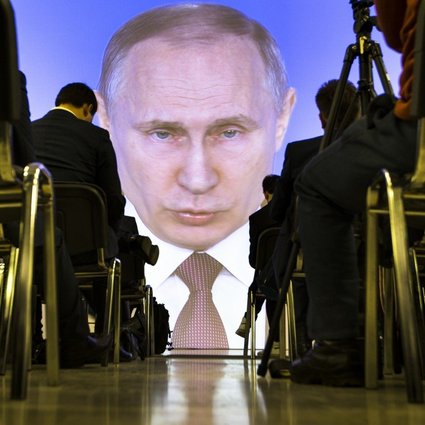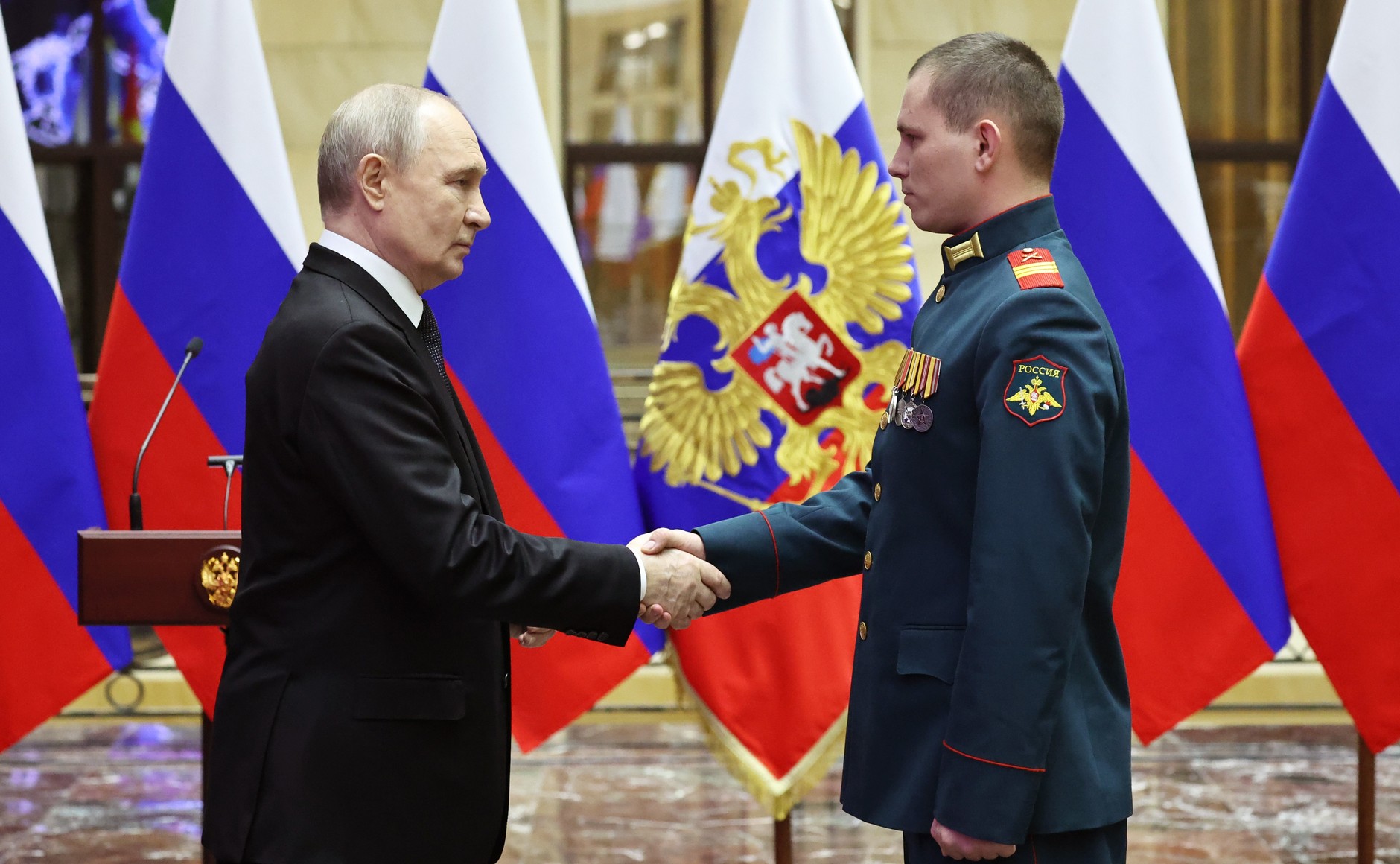
Putin Opens a Second Front: The Battle Against ‘Traitors’ Inside Russia
Putin Opens a Second Front: The Battle Against ‘Traitors’ Inside Russia
Russia’s full-scale war against Ukraine, conceived as a “blitzkrieg,” has gone on already for a month, inflicting colossal damage to Ukraine and making life in Russia substantially worse. Nevertheless, pro-government sociological centers claim that the popular approval for Vladimir Putin continues to grow, affirming that as of March 13, it was at 77.2 percent (Ren.tv, March 18). They are echoed by several independent sociologists, who confirm that nearly three-quarters of Russians support the war against Ukraine. Over the past weeks, this percentage has grown even further (Hvylya.net, March 16). At the same time, other sociologists note that “the chauvinistic euphoria of 2014 is unlikely to be duplicated.” Still, some warn that the people fear to say what they think and therefore, the value of today’s sociological data is not very high (Еuronews, March 13).
However, regardless of the population’s mood, there is a significant split within the Russian elite. Russian officials and propagandists are starting to quit and go abroad. One of the first to leave Russia was the deputy general director of Aeroflot, Andrey Panov (Deutsche Welle—Russian service, March 12). Following the protest of Marina Ovsyannikova, editor at the Russian state-controlled Channel One, who appeared on air with an anti-war placard, propagandists began to abandon Russia’s federal TV channels (BBC—Russian service, Оbozrevatel.com, March 15).
In response to these trends, the deputy chairman of the ruling United Russia party, Sultan Khamzaev, proposed a scheme to prevent celebrities and oligarchs from returning to Russia after fleeing the country since the war began (Versia.ru, March 7). Speaking on March 16 at a meeting on socio-economic support for the regions, Putin referred to those who follow a Western lifestyle as “national traitors.” In his words, they represent a “fifth column” on which the West can count to “dismember Russia.” The president expressed hope that “the Russian people can always discern true patriots from scum and traitors” and “the natural and necessary purging of society” will strengthen the country (Kremlin.ru, March 16).
On the one hand, such statements reveal Putin’s deep uncertainty that the elite will unquestioningly support his military adventure. On the other, many are inclined to think that such declarations signal the start of a new round of repression against all segments of the population. Novaya Gazeta journalist Kirill Martynov is confident that “the country should expect a hunt for dissidents even more ambitious than in recent years” (YouTube, March 17).
Apart from the common arrests at anti-war rallies, the Kremlin appears to be preparing for an even tougher wave of repression. According to the few independent news outlets in Russia, artists opposing the war will be put on a “blacklist.” They will be forbidden to give concerts and appear on television (Novaya Gazeta, March 18). The site of the so-called “Committee for the Defense of National Interests,” created in 2020 and infamous for compiling lists of “enemies and traitors,” published the personal data of 600 Russians who have left the country since the beginning of the war (Inagenty.ru, March 17).
Still, another target of repression could be those Russian elites and experts who favor concluding a compromise peace treaty with Ukraine. Following the first cautious reports on progress in the negotiations with Ukraine (see EDM, March 17), a powerful opposition arose to the idea of concluding a peace agreement among the Russian “expert community” of TV commentators. Representatives of the “party of war” already had dubbed the negotiating delegation “traitors of the Army and the Commander in Chief” (Рolitnavigator.net, March 14). They insist that the implementation of agreements is only possible after the military capitulation of Ukraine (T.me/olegmorozov0511, March 16), and the logical outcome of negotiations must be the signing of an act of surrender (Ukraina.ru, March 17).
Besides his declarations about “national traitors,” Putin voiced practically every propaganda narrative mentioned earlier (see EDM, March 10). He reiterated the lie about “biological warfare programs” allegedly conducted by the Pentagon in Ukraine; about supposed Ukrainian preparations to attack the Russian-controlled parts of Donetsk and Luhansk and Crimea and commit “genocide” and “ethnic cleansing.” Putin repeatedly claimed that Russia was “forced” to undertake a “military operation” in Ukraine and that there were no other means of self-defense (Kremlin.ru, March 16). Russian publicist Sergey Parkhomenko noted in this connection that Putin has begun to make excuses for the war, which betrays his uncertainty (TheWorldNews.net, March 17).
Along with claims about the “necessity” of the war, propaganda increasingly emphasizes that it is not so important how justified the war is. More critical is convincing the Russian population to “support Russia at the time of war” because defeat at this stage of the confrontation will inevitably destroy the country (YouTube, February 28).
At the same time, the narrative that Russia’s goal is much more global than “self-defense” and the war is intended to destroy the existing world order also persists in the information arena. Some “expert” propagandists attempt to link it to the “necessity of the war” concept, arguing that Ukraine provided Russia with the “opportunity and almost categorical imperative to ‘shake up’ the perverse European and world architecture in order to force the collapse of the global USA/Western empire” (Russiancouncil.ru, March 18).
Nevertheless, even pro-government information sources find a “significant increase in public fatigue.” They note that although the risks of protests right now are small, in the future new outbreaks of tensions within previously unaffected social groups on local issues are possible and difficult to predict (T.me/russica2, March 17). In the meantime, the authorities already have demonstrated that they have no other mechanism to react to popular discontent than increased repression and constant mobilization of the people under the pretext of a “new threat.”


